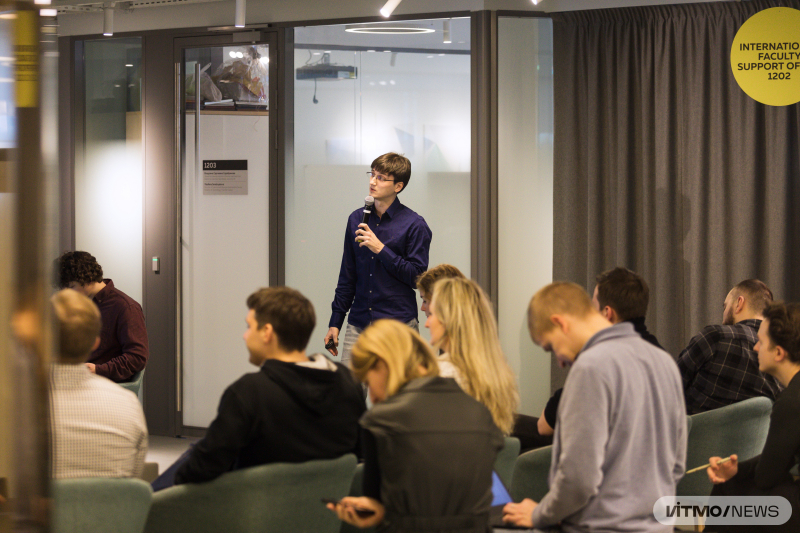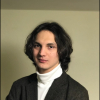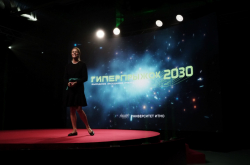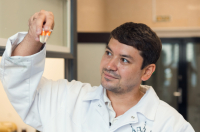With the open call format, ITMO University aims to support the best projects compliant with the goals and objectives of its 2030 Development Strategy. Last year, the university chose 36 projects that resulted in the establishment of new frontier labs, PI groups, and M-platforms.
The contest is open to ITMO students and staff, students and faculty of other universities, as well as the university’s current and prospective industrial partners. Apart from funding, the university offers winners access to its expertise, human resources, infrastructure, and partners. Find more information about the contest here.
For the contest, applicants are required to submit projects that can be completed within a timeframe of three years and fall into one of the five categories:
- ITMO.Impact (main objective: the training of specialists and teams that understand the needs of today’s market and society and can rapidly turn applied studies into products);
- Development of ITMO’s Frontier Laboratories (main objective: the establishment of frontier laboratories that will conduct research at the cutting edge of science);
- PI Group: Scientific Hyperjump (main objective: the training of next-gen PIs from among school and university students);
- Highly-Personalized Education (main objective: the improvement of the education system and the development of individual learning tracks at ITMO);
- Well-Being (main objective: the creation of a favorable environment for the holistic development of ITMO.Family).
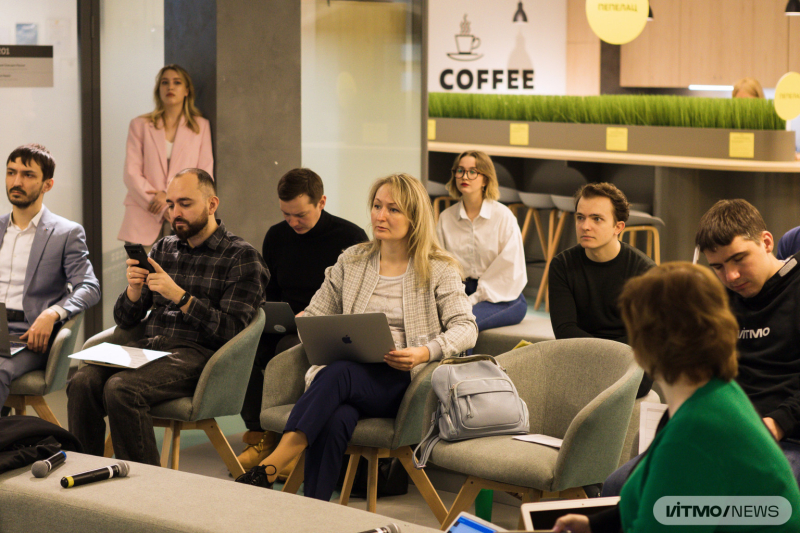
Open project defenses. Photo by Dmitry Grigoryev / ITMO.NEWS
Results and projects
In total, the university received 58 applications, including 13 proposed by student teams and 8 – by external organizations. All of the submissions underwent a thorough selection process: they were reviewed by three and more internal and external experts, as well as the representatives of ITMO’s Coordination Council. The winners of the contest were announced during a session of the council. Although the projects are meant to be implemented within up to three years, the developers are required to report on their interim progress twice a year; based on each project’s performance, the jury will decide whether to provide further funding. The first reviews are expected to be held in June 2023.
Meanwhile, the applicants whose projects have not been selected will receive feedback and a recommendation to be included in the university’s other programs.
Daria Kozlova, the First Vice Rector of ITMO and head of its 2030 Development Strategy, stated:
“I’m happy with the results of the open call, but I’d like to see more students among our applicants in the future. As the program’s head, I want our projects to be in the hands of energetic, active, and young specialists. Nevertheless, we certainly selected the most promising projects. We were strict and uncompromising.
All of the projects meet the following requirements:
- The impact of a project must be clear. They should bring an added value to ITMO University, the country’s education system, economy, and the quality of life of its citizens;
- A project must be a solution to a broad emerging challenge. Its prospects, scaling, and replication prospects should be outlined;
- A project must be industry-aligned (especially so in case of M-platforms), meaning that it helps the university to cooperate with businesses;
- A research project must revolve around cutting-edge science.
I’m confident that the winning projects will facilitate our hyperjump. We’ll see the first results this June. That’s quite soon, sure, but fast and dynamic is our style!”
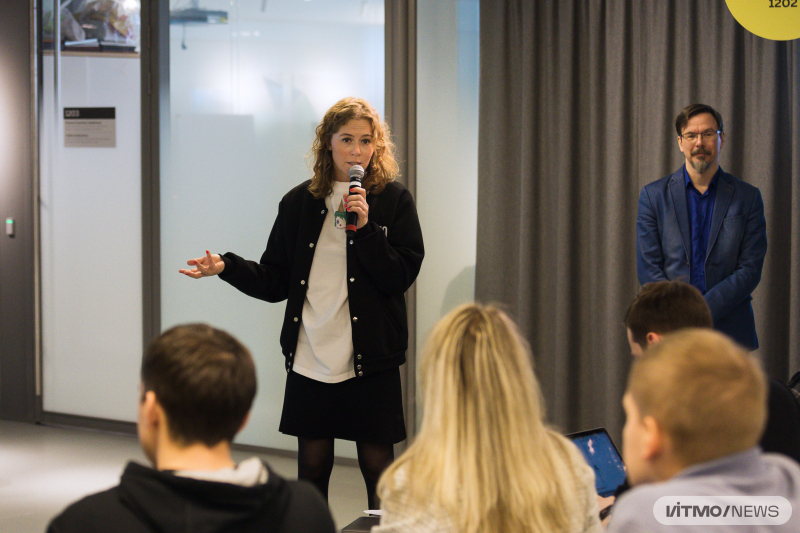
Daria Kozlova. Photo by Dmitry Grigoryev / ITMO.NEWS
ITMO.NEWS reached out to some of the contest winners to learn more about why they decided to apply and what they’re going to do next. You can find a complete list of the contest’s winners here (in Russian).
Track: Development of ITMO’s Frontier Laboratories
Valentin Milichko, a senior research associate at the School of Physics and Engineering
2D Metal-Organic Frameworks: Alternative to Silicon in Microelectronics
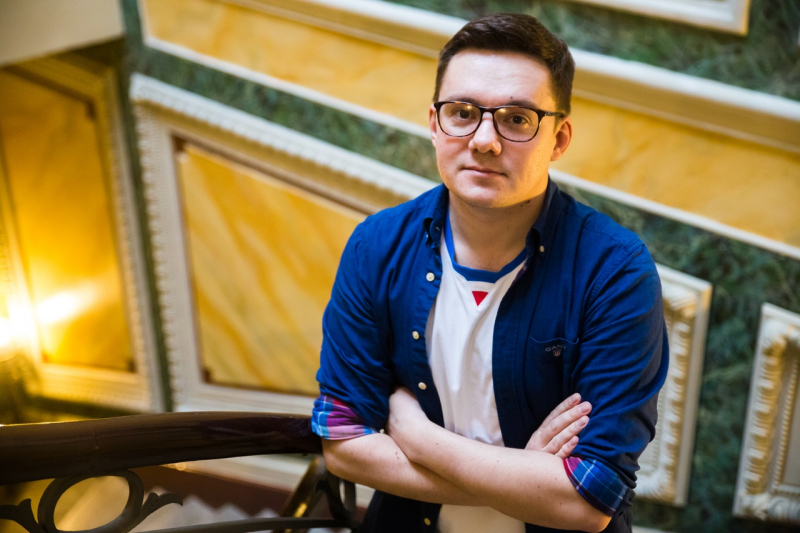
Valentin Milichko. Credit: ITMO.NEWS
I made the decision to take part in this open call for several reasons. First of all, I wanted to draw more attention to a number of pressing issues that are incredibly difficult to solve. These types of inconvenient projects are exactly what a frontier laboratory should be dealing with. Secondly, the contest was an opportunity to secure additional financial support for the many members of my research team. And thirdly, I wanted to challenge myself. Every year, I set new goals to strive towards, and managing a frontier laboratory seemed ambitious enough.
Our aim is to develop an alternative to silicon-based transistors, which are used in modern microprocessors to store and transfer data. The processing speed of these devices is limited and they require a lot of power. We can solve these issues by swapping silicon for certain hybrid materials, such as two-dimensional metal-organic frameworks. This would also have the added benefit of making the transistors easier to integrate within a microprocessor.
Track: PI Group: Scientific Hyperjump
Elena Krivoshapkina, the head of the Laboratory for Applied Materials for the Energy Sector
Catalytic Conversion of Students into PI and PE
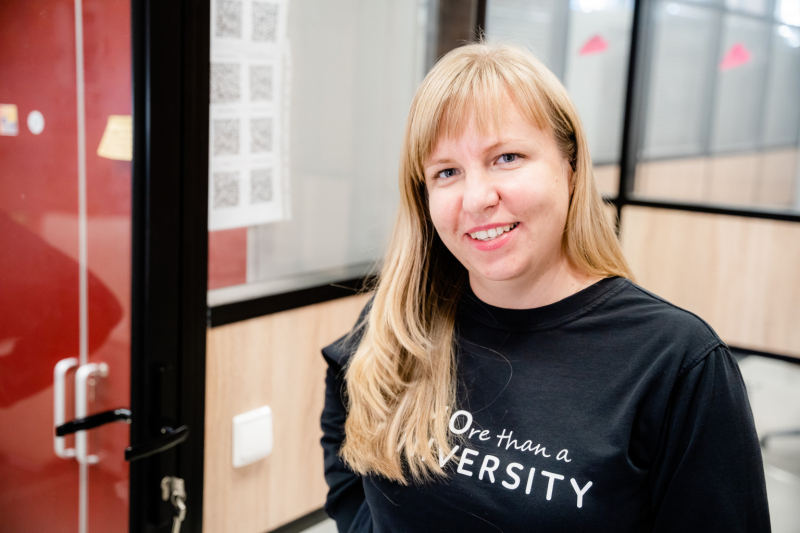
Elena Krivoshapkina. Photo by Margarita Erukova / ITMO.NEWS
The inspiration, or, one might even say, the catalyst, for joining the open call came entirely from our PhD students. After all, they are the future!
In recent years, we witnessed the emergence of a global trend towards a more sustainable, green manufacturing that would lead to a decline in greenhouse gas emissions. That is why there is a need to develop new, more economically effective methods of synthesizing chemicals. Our proposal is to utilize alternative energy sources to power the CO2 conversion process while providing high added value. With support from the Priority-2030 program, we can make the hyperjump and create a working prototype that could be used to produce chemicals from CO2 or other industrial emissions.
But the project’s primary goal is to create new highly-qualified young engineers via a long-term training system that will guide prospective students every step of the way towards completing their PhD. And in order to achieve that goal, we propose splitting the educational process into three stages: studying the fundamentals in schools and Bachelor’s programs; picking up flexible interdisciplinary skills in Master’s programs and over the first two years of a PhD program; and finally, learning the intricacies of industrial technologies and the startup ecosystem. We plan to organize educational lectures and projects for school pupils; offer internships and workshops to university students; create new programs and stipends; and help launch new prototypes via business accelerators.
Track: Highly-Personalized Education
Natalia Ten, a lecturer at the Institute of International Development and Partnership
The Life in Science Platform
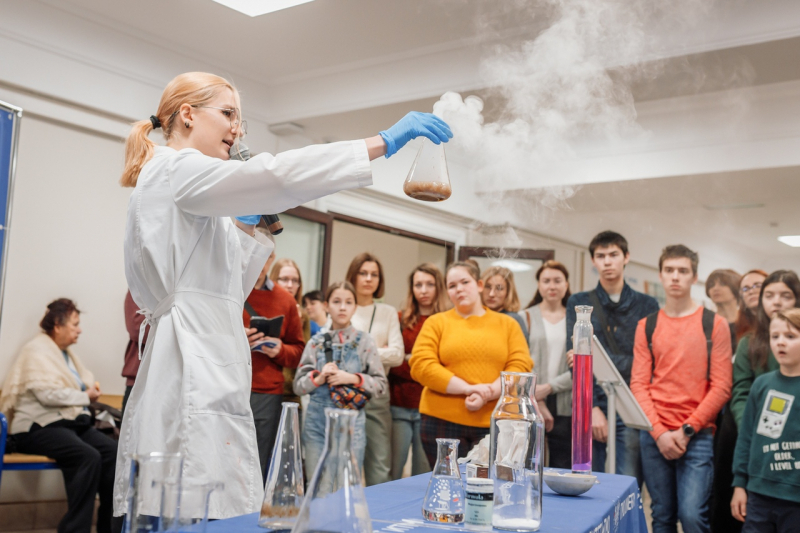
Scientific demonstrations. Credit: ITMO.NEWS
I decided to take part in the open call because I could relate to the problem that each student faces when choosing their career path. I had completed a Bachelor’s and a Master’s program at ITMO, and my collaborators on this project were also ITMO students. We all had been in a situation where we did not know which path to choose or whether our prior choices were correct. So, we launched our own project to help students learn more about what sort of career options will be available to them after graduation.
Nowadays, employers, heads of educational programs, and ITMO’s PIs all have a different idea of what to expect from an ITMO graduate. Meanwhile, the students are faced with having to plan out the steps of their education with little idea of what it might lead to. To solve the issue, we propose developing an educational platform that would simulate the context of one of ITMO’s primary areas of study: life sciences, physics, IT, engineering, economics, and innovations. We will create a unique set of tasks that will serve to describe each of ITMO’s educational programs and also show to students how they can approach their thesis in an unorthodox manner.
In order to create this platform, heads of educational programs and PIs will collaborate with a team of game designers and storytellers. All this will allow students to learn more about their future professional and research opportunities while working on their skills in several simulated scenarios.
